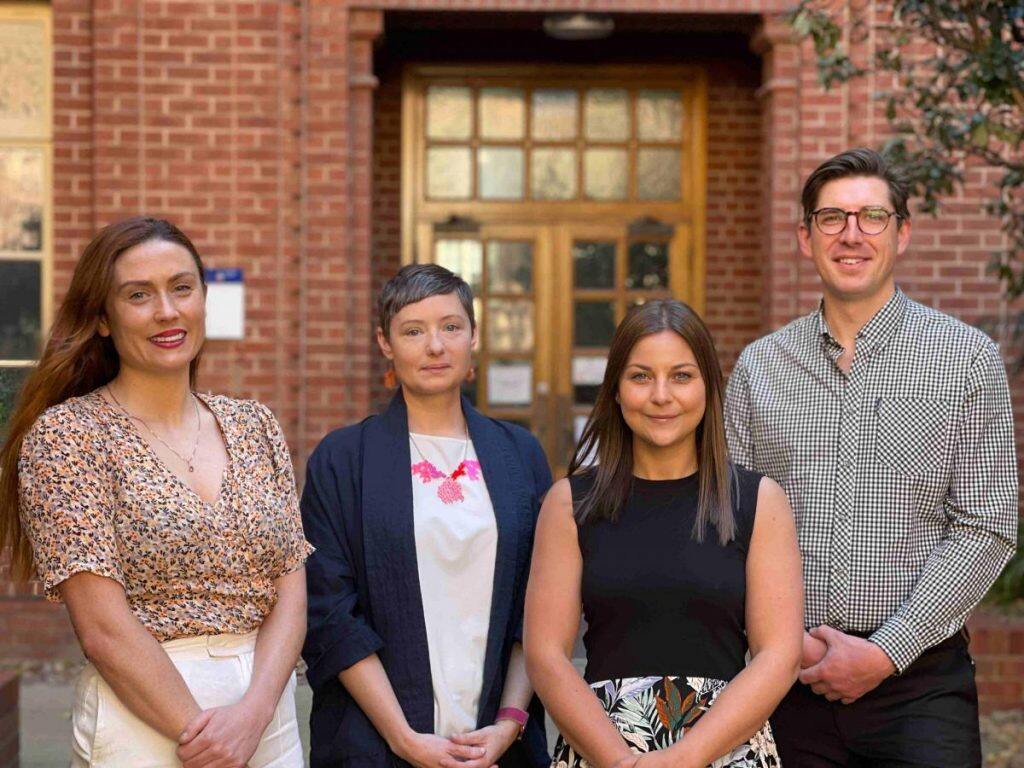Five University of Adelaide researchers have won 2021 South Australian Young Tall Poppy Science Awards.


The Tall Poppy Awards, an initiative of the Australian Institute of Policy and Science, recognise the achievements of Australian scientists and their commitment to sharing their research and passion for science with the broader community.
The five University of Adelaide winners’ research spans areas including the restoration of marine environments, combating the effects of climate change on our oceans, improving quality of life of cancer patients and survivors, and better outcomes for children and families in contact with the criminal justice system.
University of Adelaide Deputy Vice-Chancellor (Research) Professor Anton Middelberg says, “As a leading research-intensive university in the Group of Eight, the University of Adelaide has a long and proud history of excellence in research.
“I am delighted to see five more researchers from our University recognised for their outstanding achievements in research, and ongoing commitment to inspiring and engaging a wide audience in their work.”
The University of Adelaide’s 2020 Young Tall Poppy Science Award winners are:
Dr Alice Jones – Research Field: restoring and protecting coastal habitats for climate change mitigation
Dr Jones’s research focuses on ‘blue carbon’, which is the uptake and storage of carbon in coastal ecosystems like mangroves, seagrasses and tidal marshes. She is focused on the potential to increase blue carbon storage and mitigate climate change through activities that restore and protect our coastal habitats.
Dr Jones’ expertise and research contributed to the development of the SA Blue Carbon Strategy, and she works with the Commonwealth government to develop methods for carbon crediting through restoring and protecting coastal ecosystems.
Dr Jones is an Industry Research Fellow, a joint position between the University of Adelaide’s School of Biological Sciences (Faculty of Sciences) and the SA Department for Environment and Water
Dr Dominic McAfee – Research Field: new techniques for oyster reef restoration
Oysters formed enormous reef networks over thousands of kilometres of Australian coastline 200 years ago, underpinning the health and wealth of our coastal seas, but all are extinct today. The restoration of our lost oyster reefs can help recover the declining productivity and resilience of our coastal ecosystems.
Dr McAfee is developing new techniques for accelerating the restoration of oyster habitat by boosting the natural processes that are essential to restoration success. He aims to boost the wild recruitment of baby oysters by creating positive interactions between oysters and kelp and using underwater speakers to play natural marine sounds that attract baby oysters.
Dr McAfee is a postdoctoral researcher at the University of Adelaide.
Dr Linda Armbrecht: Research Field: ancient DNA techniques to understand past marine species survival
With ongoing climate change, research into Earth’s resilience is a matter of urgency, particularly in rapidly melting polar regions. Records of the past are key to understanding how climate change might affect marine life. By looking at past marine sedimentary records, researchers can learn what organisms existed previously, for how long, and how they adapted to changing ocean conditions.
Dr Armbrecht has optimised sedimentary ancient DNA techniques to investigate important past marine species (particularly plankton) from only a few grams of seafloor sediments. She is applying these techniques to reconstruct marine ecosystems around Antarctica over the last few thousand years to gain insights into their existence that could help inform climate change strategies for the future.
Dr Armbrecht’s research is supported by the Australian Centre for Ancient DNA within the School of Biological Sciences, the University of Adelaide.
Dr Hannah Wardill: Research Field: improving the quality of life for people living with or beyond cancer
There is an ever-growing number of people surviving cancer. Researchers are just starting to understand the long-term consequences of the disease and its harsh treatment, with consequences physical, psychosocial and financial.
Dr Wardill’s research aims to improve the quality of life of people living with or beyond cancer through personalised and proactive supportive care solutions that target common multiple problems in parallel. She is currently investigating the benefits of faecal transplants in people with blood cancer and will soon be starting a large clinical trial to evaluate medicinal cannabis in people with advanced cancer.
Dr Wardill is a NHMRC CJ Martin Biomedical Research Fellow and Lead of the Supportive Oncology Research Group, The University of Adelaide (affiliated with: SAHMRI and University Medical Centre Groningen).
Dr Catia Malvaso – Research Field: better outcomes for children and families in contact with the child protection and criminal justice system
Dr Malvaso focuses on identifying when, how and for whom experiences of child maltreatment and other adversities lead to offending behaviours in adolescence and adulthood. She collects and analyses data from multiple sources in order to inform prevention strategies that can improve outcomes for children, their families, and communities.
Dr Malvaso’s outreach and engagement begins with children and young people in custody and in out-of-home care in order to better understand their situations and to advocate for better opportunities and outcomes on their behalf. She works closely with government and non-government partners to ensure that her research findings inform policy and practice decisions.
Dr Malvaso is supported by an Australian Research Council Discovery Early Career Researcher Award in the University of Adelaide’s School of Psychology and School of Public Health as part of the BetterStart Child Health and Development Research Group.







































